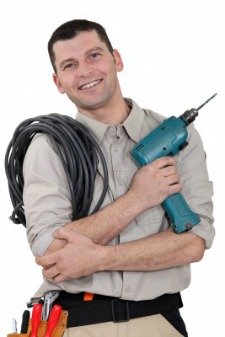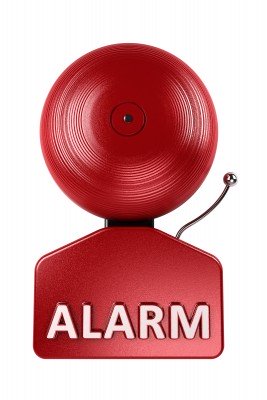DIY Home Security Systems

Are DIY home security systems a good idea for everyone? No, not everyone. Many people need skilled professionals to install their home security system; but maybe they are right for you.
If you are somewhat handy with tools and installing electrical devices doesn’t scare you, then by all means do give it a lot of consideration. You can sure save yourself some money.
Most of us are capable of installing a security camera or two, and of course installing a barking dog alarm is a piece of cake, but complete diy home security systems are another matter.
I consider myself to be pretty handing and I have installed many security devices, so it was not a problem for me. But for an inexperienced home owner you need to be sure to do your homework before making any purchases.
DIY home security systems can be purchased in the form of a kit. If you decide to tackle this project yourself, I recommend purchasing a kit. The prices are reasonable compared to purchasing each individual item, and most kits have very informative installation manuals.
The following video is not a complete installation manual for a security system, rather we feel it gives a good look at some of the steps you might encounter doing self installation. Take a look at the video and if you are not scared off, then you might be a diy candidate.
Alarms Systems Installation
Ok, you weren’t scared off. Then let’s look a little further at diy home security systems. Most of the home security systems use ringing bells, buzzers or some other sound source to alert you against a possible intrusion.The installation process places the sound source where it can be properly heard.
Also installed is a backup battery system. The backup battery is needed because power failure may cause the alarming system to fail. And robberies seem to pick up during power outages. Also, wireless battery operated sensors can be installed.
A big tip I learned the hard way is before installing any security system, read through the installation manual.
Fully understanding your complete installation process will save you time and money. Faulty installations could cause damages to the security system itself. Trust me; I know this for a fact.
Closed Circuit Systems

Security systems are generally made up of closed circuit systems. When all the doors are closed, the installed switches are closed. Opening the doors will cause the circuit to break and set off the sound. The sound will not stop until the battery attached to the sound device goes dead or someone resets or switches off the sounding circuit.
An electronic switch is attached to the sounder. This switch is triggered by breaking the switch loop which is present in most of the alarms. Once the alarm set is on, one needs to press the key switch to silence the alarm. To reset the sounding alarm you have the keys or code with you.
There are two parts to the switch device. The first part is a small plastic box which contains a strong magnet and the second part is a unit that contains the actual switch. When magnet and switch are broken apart, the alarm is said to be open.
All parts of the alarm sounding system are mounted on a circuit board. Below the circuit board are the solenoid coil and a ringing plunger which strikes the bell and sets off the electronic sounder.
Below the solenoid coil there is a string of breaker points. They cause the ringing plunger to vibrate up and down, thus triggering the sound device.
Installation Process

The sounder or sound source should be the first item installed in diy home security systems. Before installing, search for a suitable place for installation.
Choose a place where an intruder cannot get access easily. To install the sounder outdoors will involve drilling a hole through the walls for the wiring. To protect the sounder from variations in weather it needs to be installed in a weatherproof metal box, specially designed for security sounders.
In the box there will be a bracket for attaching a tamper proof mechanism, which triggers the security alarm if anybody tampers with the box itself. There is a key switch inside the box which allows an authorized person (someone with a key) to change the settings of the security system.
Indoor Installation of Sounder
If you are going to install the alarm device indoors you won’t need the weatherproof metal box. Mounting the sounder on a wall will do the job for you. Again, placing the sounding unit where it can be heard the loudest is the best solution.
The sounder kit should include a mounting plate for attachment. Remove the mounting plate. Using wood screws, attach the plate to the wall. Make sure that it is installed in the direction given in the installation manuals.
Install Magnetic Switches
The next step in diy home security systems installations is to install the switches for the doors and windows. On the doors and windows attach the magnetic part of the switch. Then attach the switch part to part of the window or door frame. Use the screws given in the kit to mount various parts.
When the window or door is closed, you want the two parts as close together as possible. And, when they are open you want the two parts far apart. This process is to be done carefully and according to the installation manuals. Otherwise, the alarm will not work properly.
Temperature variations can cause the alarm to malfunction, especially during hot weather conditions. For better performance install sensors that handle temperatures of 190 degree Fahrenheit, especially in hot areas.
These are called fire sensors and should be mounted at different points all over the house and attic.
Window Foil Tape Adds Security

All the prior installations dealt
with an unwanted intruder breaking open a door or window. But what if they
break out the window plane and come in that way. There is a product called
window foil tape to handle that. Complete diy home security systems will include this feature.
This silver foil tape has an adhesive backing to allow installation all around a window. The tape has to be continuous and both ends are connected to the security system.
And just like the other switches, when this switch, or tape, is broken then the alarming sounder is set off.
All Wired Together
The last installation step is to wire all this home security system together. Typical locations are the basement or laundry room. But any handy, dry and little traveled location will work.
I’m not going to give you many details about this because every situation is so different. But the main idea is you have to run wiring from every device back to the circuit board.
You will run the wires thru the walls and above the ceilings. The installation manual should give you good details on this. And I hate to tell you this but this step takes more time than any of the others. Unless you are installing just a couple of devices, plan on a long day.
Conclusion for DIY Home Security Systems
DIY home security systems are not for the faint of heart. But there are many people who prefer to do the job themselves. What we have tried to offer here is an overview of the installation process of a home security system.
Without a doubt big time savings can be had by doing self installation of your home security system. And since you have installed the system, repairs and additions will be no big deal.
All in all, if you have some installation experience, and have the time, then by all means give it a go. Good luck.
Related Articles to DIY Home Security
DIY Home Security Systems - The Process of DIY
DIY Home Alarm - Setup Your Own
DIY Security Systems - An Ideal Security Solution
DIY Alarm Systems - Here's the Buzz
DIY Home Security Alarms - Helping You Keep Your Home Safe
Home Security DIY - Plan Your System
DIY Home Alarm Systems - No More Excuses
Self Install Home Security - You Can Do this
The Logic of A DIY Alarm System
Home Alarm Kits - Pricing Out Quality
DIY Security System - Installing Your Own
Do It Yourself Home Alarm Installation
Apartment Security Systems That Move with You
We Hope Our Website Is Helpful to You
Would you like to know how we are building this website?
Have you ever thought about building your own website and making some money from it?
Would you like to learn more?
Check this out! Work From Home
Please Stay Safe!

We Care!
